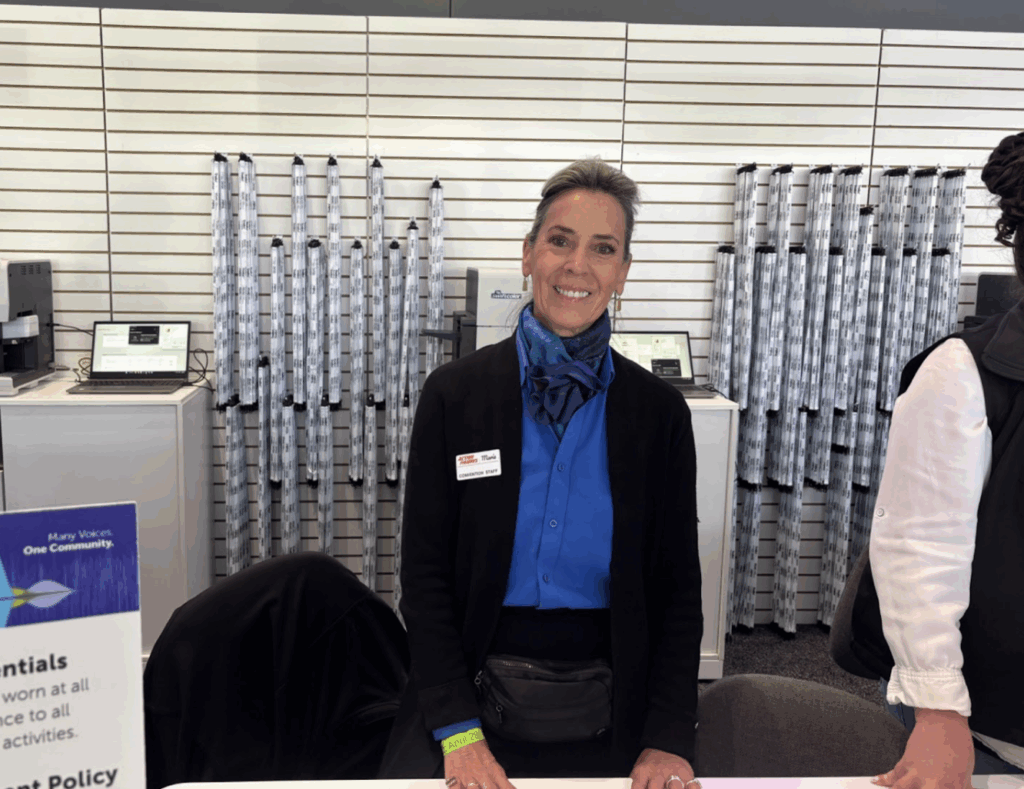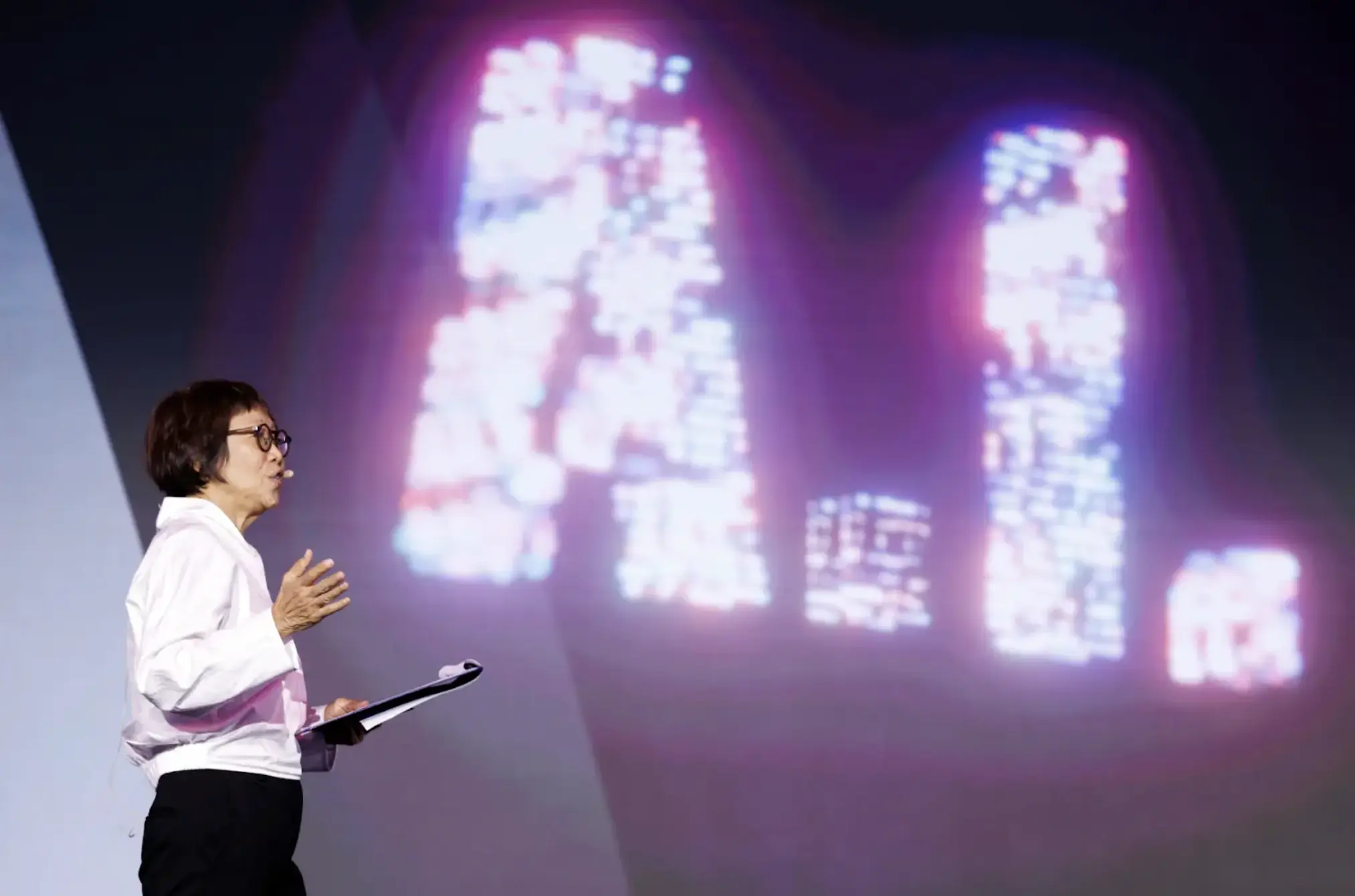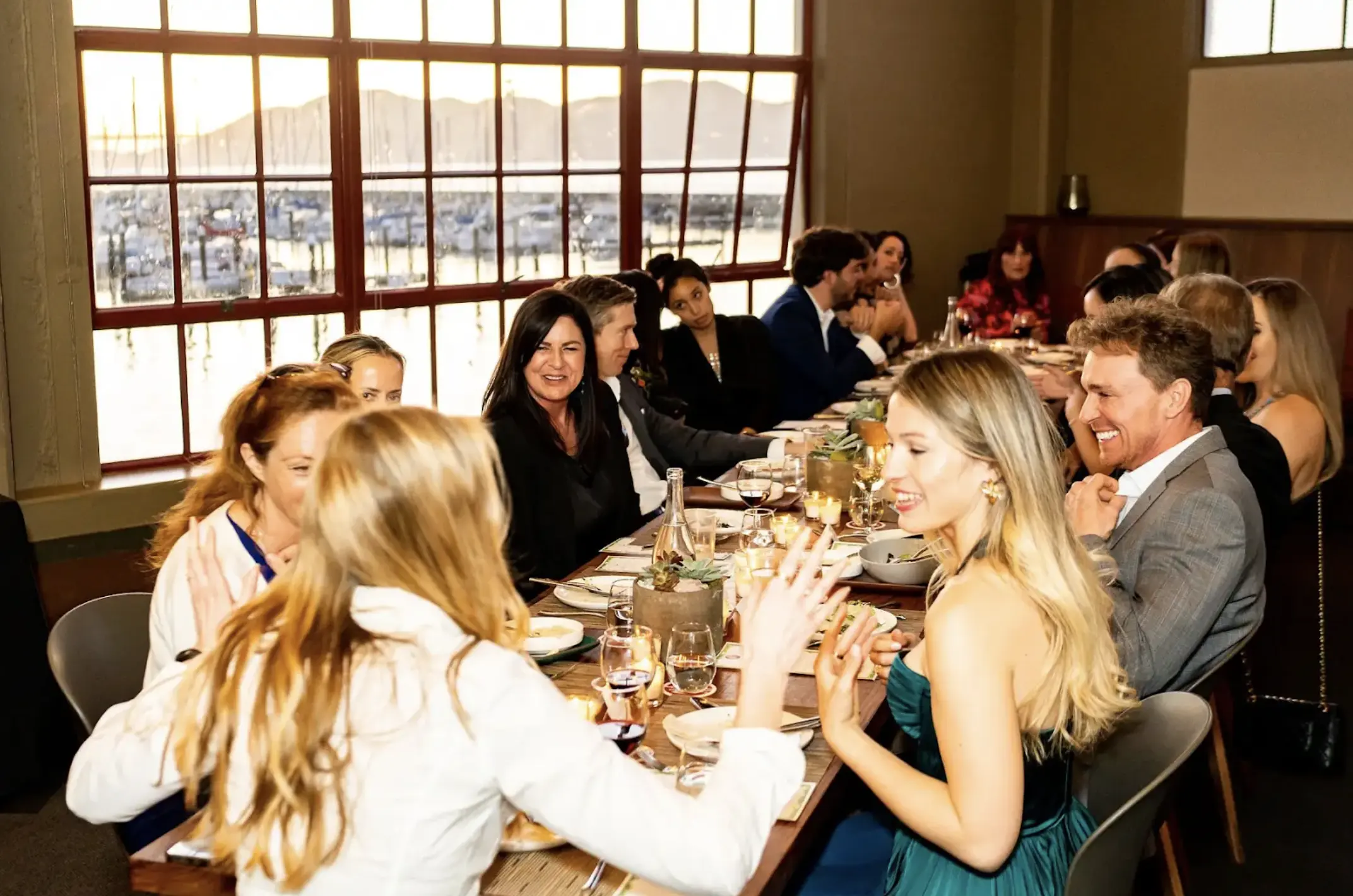Maria Cabrales stands behind the press badge credential booth at RSAC in San Francisco’s Moscone Center South building on April 28. By Adam Manno
If a conference had eyes and ears, they’d come in the form of the diligent workers behind the check-in counter.
Not only do they greet every single person that comes in, from exhibitor to attendee, they also know where everything is, acting as concierges, tour guides, and first responders when things go wrong.
Maria Cabrales worked the press badge credential booth at RSAC in April. The Colombian native, who worked as an attorney back home before moving to the United States, has been working with event management Nth degree for five years.
She previously worked stints as a Spanish teacher and at Walmart, but has focused on event jobs ever since the pandemic.
“It’s hospitality. You try to be nice, welcoming and respond to all the questions,” she told Vendelux as she stood behind her booth at San Francisco’s Moscone Center.
Vendelux checked in with Cabrales during the hectic conference in the heart of The Golden City.
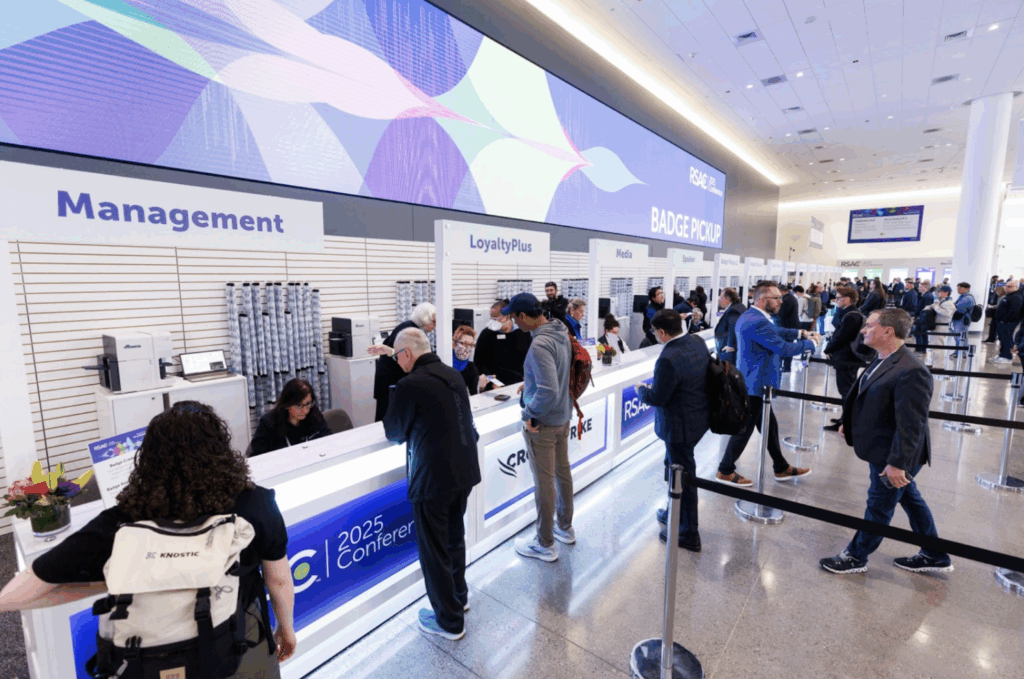
Monday
9 a.m.
The line was empty as I approached Cabrales and a colleague, who promptly handed me my badge and directed me to the press lounge, tucked behind the mezzanine in between the first and second floors.
12 p.m.
Cabrales and I strike up a conversation, wherein she shares a little bit about her background and explains some inside baseball about the world of trade shows.
“The most important people for any convention are loyalty, media and speakers, so we focus on that,” she said. “They’re really gentle and nice people.”
4:00 p.m.
The keynote speech is about to start, and the lobby of the South building is now swarming with people in business casual and lanyards.
“People have been waiting a year to come here. You have to give them good and welcoming energy,” Cabrales said.
Asked about an unexpected part of her job, she replies: “Helping people, where’s the nearest pharmacy, what’s the closest restaurant, etc.”
At this point, a man approached me to start a conversation. While I spoke to him, Cabrales met my gaze cautiously.
“Be careful with him. We have an eye on him,” she said. “Don’t give him too much information.”
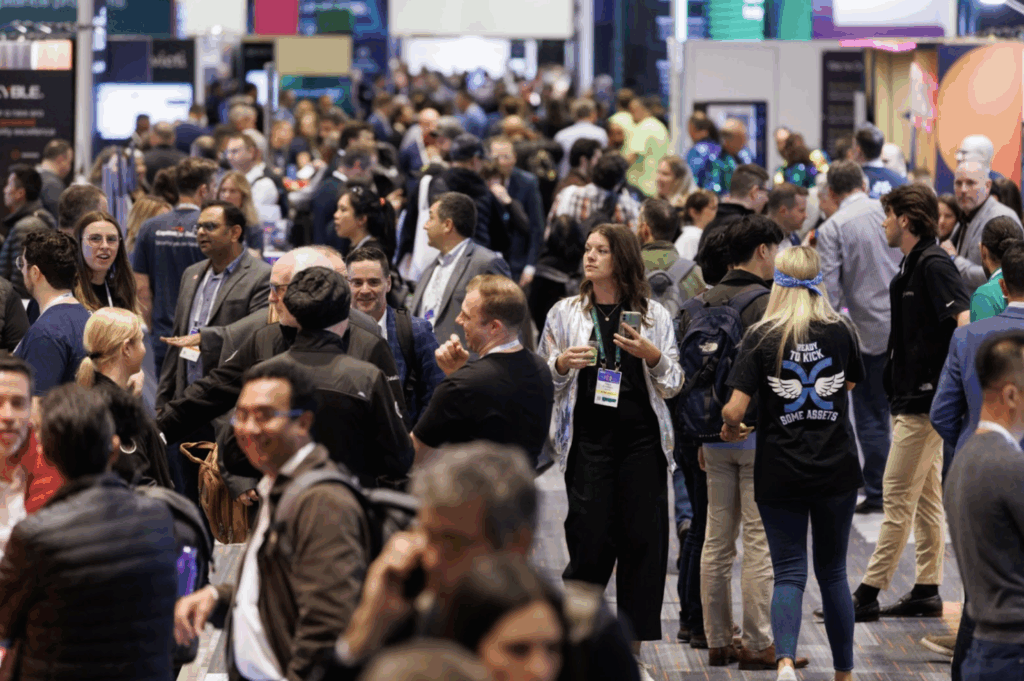
Tuesday
10:30 a.m.
I tried catching up with Cabrales, but she silently pointed at her boss who was standing nearby, suggesting that now wasn’t a good time. I turned back for the expo hall.
6 p.m.
As the second day of the conference nears its end, Cabrales and her team get a break.
“Everything’s going well,” she said. “Tomorrow, everything will decrease, especially with registration.”
As for tonight, she plans to take it easy, cooking with her husband and heading to bed early for her 7 a.m. start on Wednesday.
Wednesday
2:30 p.m.
By this point, I’m growing curious about the man from Monday that Cabrales warned me about.
I learn that he’s known to prowl around the lobby, talking to people and gathering information. Sometimes, he uses a lanyard from a previous year to gain access to the conference center.
I’m told that the matter was escalated to the appropriate person.
Aside from that, Cabrales says it’s another calm day at the press registration booth for RSAC.
Not one to be left out, her colleague Joanie, who’s been working in events since 2011, chimes in with a few tales about her years in the industry.
She says that there’s a lot of chatter about automation, and how it could make event management roles like hers obsolete. Some fear that touchscreen kiosks could make the job of registering an attendee a lot cheaper for conferences.
“Not happening,” she says. “We check in some of the most interesting people in the world. They can’t figure out how to print a freaking badge.”
